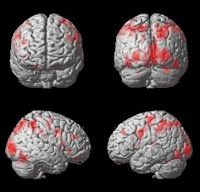
Functional MRI gives the ability to directly observe brain functions, which open further exploration into the way the brain interacts closer to real time or the more active part of the brain. The potential to decode short-term memory can have other implications.
Having a better understanding in the how the brain is involved with memory storage can lead to further studies involving in treatment of PTSD or even coming closer to a cure for Althemizers.
The first human scan achieved on a MRI was in 1977. This technology has influenced medicine in a such positive way in individual cases and on a grand scale in the medical world. Psychologist have been able to make connections to brain activity with human behavior due to the images developed via MRI and the development of psychotropic medication. With the fMRI being able to depict the active part of the brain, the territory of exploration has become wider and possibilities even greater.
Having a better understanding in the how the brain is involved with memory storage can lead to further studies involving in treatment of PTSD or even coming closer to a cure for Althemizers.
The first human scan achieved on a MRI was in 1977. This technology has influenced medicine in a such positive way in individual cases and on a grand scale in the medical world. Psychologist have been able to make connections to brain activity with human behavior due to the images developed via MRI and the development of psychotropic medication. With the fMRI being able to depict the active part of the brain, the territory of exploration has become wider and possibilities even greater.




